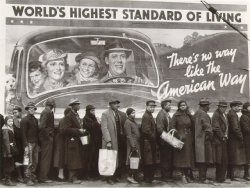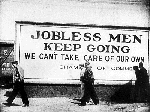A Detailed Summary of the Localism Bill

The Bill received its second reading on 17 January 2011, and will go on through three more stages in the House of Commons and five stages in the House of Lords (possibly being changed as it goes) before becoming law. An explanation of the process can be found here. The full text of the Bill can be found here.
The BBC news website has a shorter summary of the Bill here. This summary doesn't include all the measures covered by the BBC, but it concentrates in greater depth on items of particular interest to local government and public power and democracy.
Community Right to Challenge - Public Sector Competition
[Part 4, Chapter 3 of the Bill]. Any voluntary or community group, charity, parish council or two or more council employees are entitled to put forward an "expression of interest" to a council, indicating that they would like to run one of the council's services, or help to run a service.The council must consider the expression of interest, with particular consideration of the possible social, economic or environmental benefits of accepting the proposal.
If the proposal is accepted, the council must then begin a procurement exercise for that service.
Additional Freedoms for Councils
Councils are to be given a "general power of competence". [Part1, Chapter 1 of the Bill]. They are to be allowed to anything they are not expressly forbidden from doing. This enables a council to do pretty much anything a person can do. In particular, councils can run a business or provide a chargeable service of any kind anywhere in the UK or abroad, for any reason. The income from a service is not allowed to exceed the costs of running the service. This does not alter the rules under part 6 of the Local Government Act 1972, part 1A of the Local Government Act 2000 or any arrangements that "authorise a person to exercise a function of a local authority."However, a council is not allowed to turn a service that it must provide by law ("a statutory provision [that] requires the authority to provide...") into a chargeable service. Any chargeable service provided under this measure must be delivered through a company or co-operative [Note: council departments are to be free to split from their authority and form their own co-operative].
Fire and Rescue Authorities are given much the same powers, except that they are not allowed to borrow money. [Part 1, Chapter 2 of the Bill].
Elected Mayors
12 cities are to hold referendums in May 2012 on whether to have elected mayors. The cities are: Birmingham, Bradford, Bristol, Coventry, Leeds, Leicester, Liverpool, Manchester, Newcastle upon Tyne, Nottingham, Sheffield and Wakefield. Current council leaders are to become "shadow mayors" until then.Councillor Conduct
The Standards Board is to be abolished, and councillor wrongdoings are instead to be dealt with via criminal prosecution. In detail: all council / authority members, and anyone who has a vote at any council committee, must maintain a "high standard of conduct". Councils "may" adopt a voluntary code of conduct, and a written allegation of a breach of this code will cause a council to decide whether or not they agree the code has been breached, and what to do about it. Chapter 5, sections 17-18 of the Bill concern the keeping of a register of interests, setting out members' financial interests and other possible conflicts of interest with their council work. Failing to register an interest, or carrying out business that was blocked by a registered interest, is an action that may be prosecuted by the Director of Public Prosecutions. If found guilty, a fine of up to "level 5" may be levied, and the guilty party could be barred from holding office for up to 5 years. Prosecutions can be made up to 3 years after the offence.The Bill clarifies that councillors are to be allowed to campaign on issues without being accused of bias. This measure is probably introduced to smooth out their role in local referendums.
Referendums
The Bill includes a number of measures to allow the public to influence local decision-making through local referendums. This dealt with in Part 4, Chapter 1 of the Bill. The public is to be given the power to trigger a local referendum on a local issue. Anyone registered to vote in the local elections will be able to vote in a triggered referendum. A referendum can be triggered by 5% of the local electorate signing a petition within a 6 months timescale, however a council can accept a petition and trigger a vote even if the petition gets fewer signatures, if it wants to. A referendum can also be triggered by a council member requesting one. People signing the petition must include their name, address, signature and the date. Petitions may also be carried out electronically, with the format to be decided by the council. The petition must include the question that would be asked in the referendum if it went ahead.The petition can be about any local matter, and the council can reject the petition if it thinks the matter is not local, or would require the use of powers it doesn't have. A council can also reject a petition if it thinks the request is "vexatious or abusive", or if campaigning for or against the measure would break a law.
A council can change the wording of the referendum question, but only in consultation with the person who organised the petition.
Council tax increases are to be subject to local referendums. Councils must hold a referendum if their council tax increase for the year is "excessive". The exact definition of "excessive" is not set out in the Bill or schedules, instead it will be determined by a formula each year given by the Secretary of State. In the case of a referendum, the council must put forward it's "excessive" budget plans, and a budget plan that is not "excessive", and local voters will choose between the two. [Note: previous tries of council tax referendums suggest that people usually vote for lower taxes, and this especially true in lower-income areas.] The Secretary of State can over-ride the need for a referendum. This is dealt with in part 4, chapter 2, which also sets formally sets out rules on how council tax should be calculated and presented.
Planning and People Power
Further power is (potentially) placed in the hands of the public with regards to planning matters. Part 5, chapter 3 of the Bill introduces the concept of "Neighbourhood forums". Any group of people can band together and create a group, with a constitution, and designate an area they consider "their neighbourhood" - but only if that area isn't part of a parish council. In order to win recognition from the council of being a neighbourhood forum, the rules state that the group must be "established for the express purpose of furthering the social, economic and environmental well-being of the individuals living, or wanting to live, in an area that consists of or includes the neighbourhood area concerned; the membership of the organisation or body is open to individuals living, or wanting to live, in the neighbourhood area concerned; there are at least 3 members of the organisation or body each of whom lives in the neighbourhood area concerned; and the organisation or body has a written constitution."Parish councils can act as neighbourhood forums.
Once created, the neighbourhood forum can attempt to create "neighbourhood development orders". This can grant planning permission and create development plans for the area. In order to pass, a referendum of everyone living in the 'neighbourhood' is taken, and permission is granted if over 50% vote in favour.
Senior Pay Accountability
Senior council staff pay is to be made more accountable. [Part 1, chapter 6]. Authorities must publish a "senior pay policy statement" every year, starting from the financial year 2012-13.This statement will set out policies and levels of chief officers' pay, including raises, bonuses, performance-related pay and so on. The statement must be approved by the authority each year, and as soon as possible afterwards, published on their website. Changes must also be approved (this would cover, for example, cases where a council leader leaves the authority part-way through a financial year - salary increases to attract a candidate would have to be approved).




